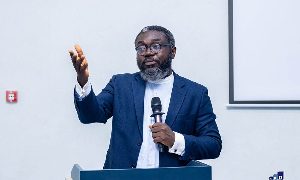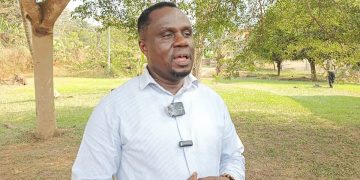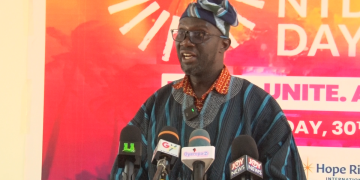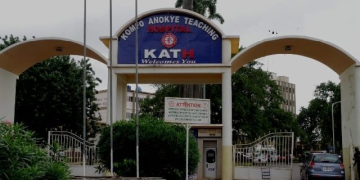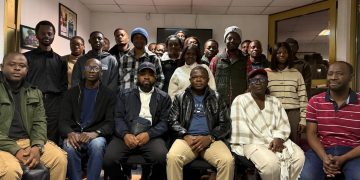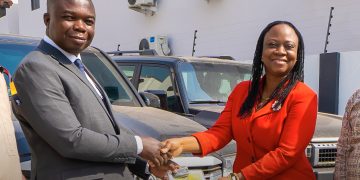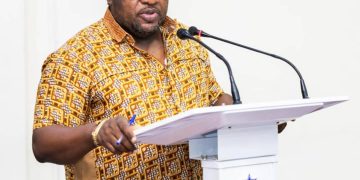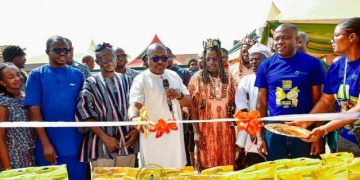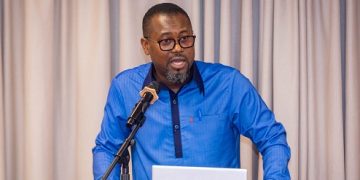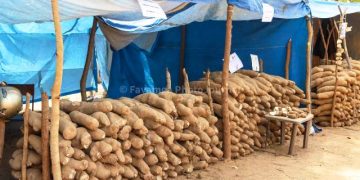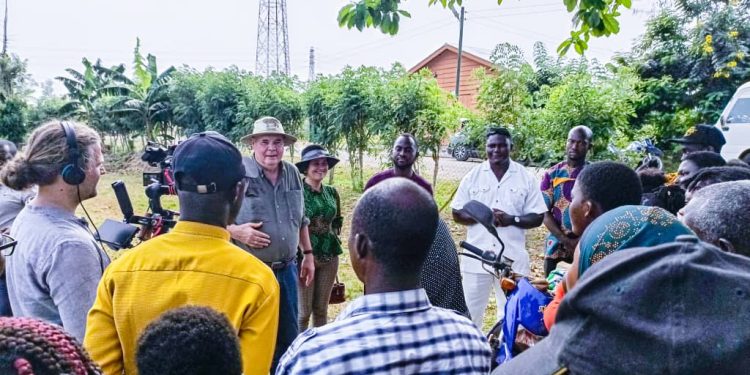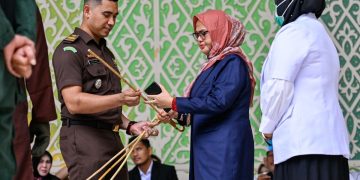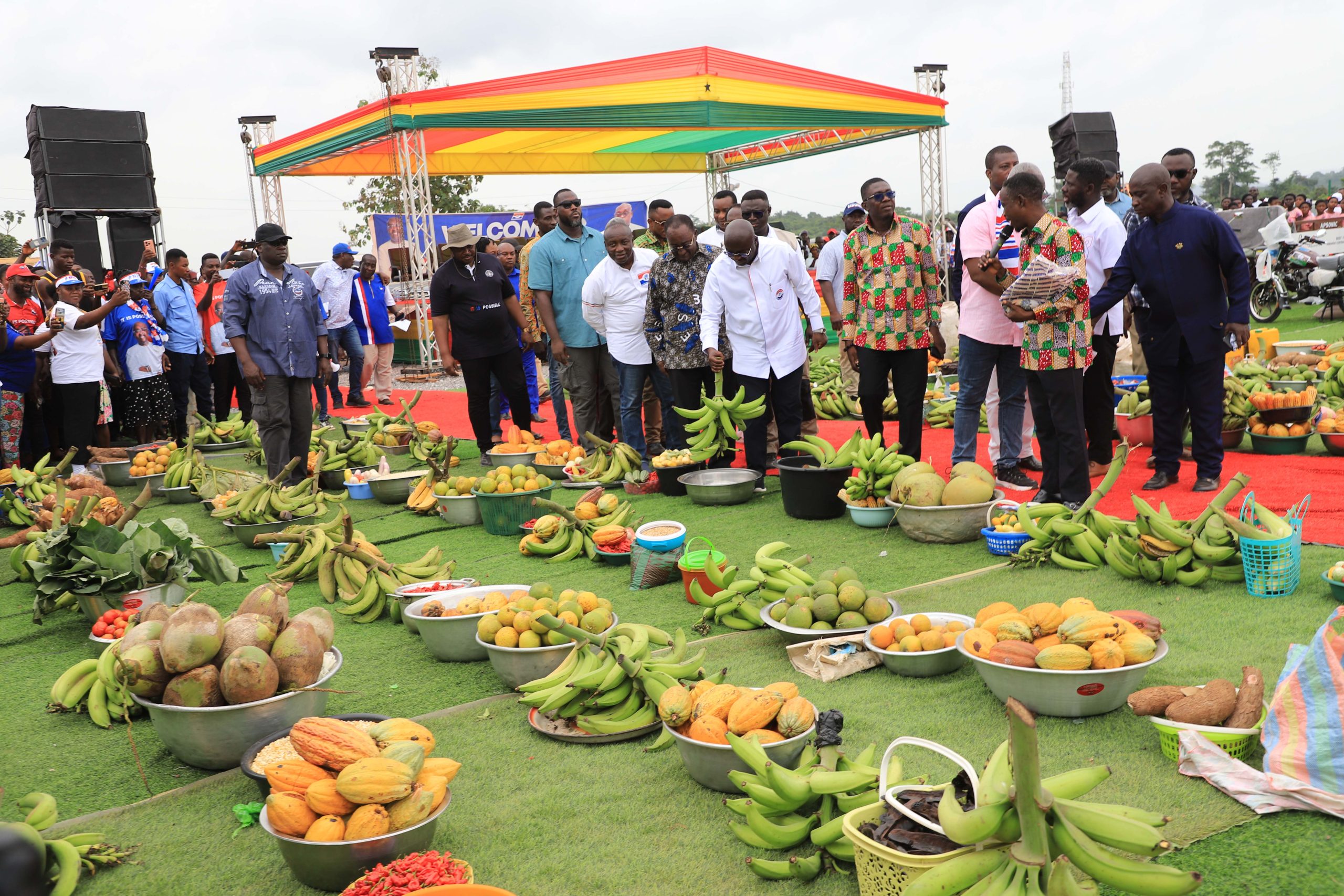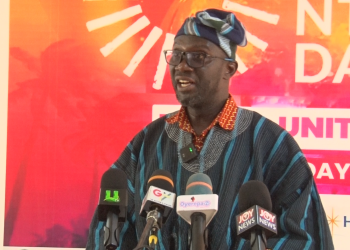President of Ecoland International, Rudolf Bühler, has called on Ghana to prioritize organic agriculture to achieve food sovereignty and reduce dependence on chemical industries, genetically modified organisms (GMOs), and imported food.
Ghana’s import of essential food commodities has reached an average US$2 billion each year, data from Ministry of Finance (MoF) revealed.
According to the MoF, key foodstuffs including rice, poultry, sugar and tomatoes comprise a chunk of the imports.
Speaking at the 2nd Edition of Orgamic Farmers Day, held at University College of Agriculture and Environmental Studies(UCAES) in Bunso, Eastern Region, on Thursday,Rudolf Bühler President of Ecoland International underscored the critical role of organic farming in sustainable land use and protecting the country’s natural resources.
“Organic farming and organic food systems are the only way for sustainable land use and protecting our natural resources,” Bühler stated.
“We should not go the way of getting dependent on the chemical industries, not on artificial fertilizers and pesticides. No – with organic agriculture systems, we are employing our natural resources in order to achieve and harvest our daily bread and nutrition.”
Bühler stressed the need for Ghana to attain food sovereignty by reducing food imports. “We should consider the fact of food sovereignty, especially in Ghana, as most of the food and nutrition is being imported from all over the world – from Europe, China, South America, the USA, and so on,” he noted. “Ghana is a rich country, but achieving food sovereignty should become part of the national policy.”
He also warned against reliance on agrochemicals, stressing that national self-sufficiency should not be compromised by dependency on companies profiting from pesticides, GMOs, and artificial fertilizers.
“Of course, Ghana is a rich country. But to achieve Food Soverenity should become part of the national policy! And national Food Soverenity means not only to increase the
agricultural production to a certain level not to be dependent on food imports, but also not to become dependent upon the chemical industries who want to make business with pesticides, GMOs and artificial fertilizer”. He added.
In his speech, Bühler lauded Ghanaian farmers for their dedication, describing them as the “backbone of the country.”
He also outline progress made by Ecoland International and Ecoland Organic Ghana in developing organic agriculture structures, including education, research, training, Organic farming law and certification systems.
“ECOLAND is Assisting the Organic Desk of the Ministry of Agriculture by
preparing the draft for a organic law for Ghana “
He added “We are supporting initiatives such as education, research, and academic degrees in organic agriculture at UCAES University, including an organic diploma course that started in January 2023, as well as a large demonstration and research field established in 2022.”
Bühler urged farmers and policymakers to unite in transforming agriculture in Ghana towards a climate-resilient, environmentally sustainable future.
Representative of German Embassy in Ghana Sivine Jansen, said global challenges like climate change makes organic farming increasingly better alternative for food security adding that it also has the potential to create job opportunities to curb rural urban migration.
Dr. Isaac Adodoadji, Projects long term expert of Ecoland addressed pressing challenges facing Africa, such as rising food prices and malnutrition, and stressed the importance of promoting sustainable agriculture.
He said the Partner Africa Project, built on four foundational pillars, aims to contribute to several Sustainable Development Goals, including eradicating hunger, promoting quality education, and preserving ecosystems.
Among the notable achievements include, growing Ecoland membership to over 1,200 members, and providing training for over 700 farmers on organic and climate-friendly farming practices.
Okyenhene Osagyefuo Amoatia Ofori Panin represented by Osabarima Abused Peasah II, Tafohene said a return to sustainable organic farming is essential to food safety and security and protection of the environment.
He acknowledge the challenges of Organic farming but encouraged farmers to be resilient . He called for adequate policies and capacity building for organic farming.
Some distinguished personalities present at the event included Mrs. Cristina Bühler, Prof. Dr. Patrick Ofori-Danson,Rector of UCAES, Dr. Kwaku Adu, and Dr. Oppong -Kusi, both Lecturers, as well as students,organic farmers and some local chiefs.
Source : www.kumasimail.com/ Kojo Ansah



